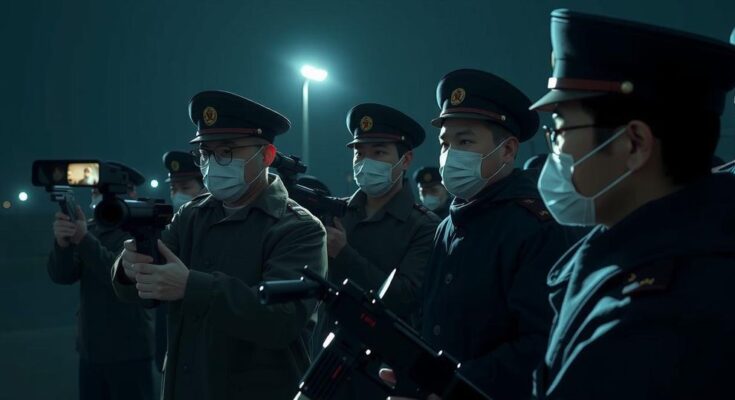The Transitional Justice Working Group (TJWG) reported over 100 enforced disappearances of North Korean defectors after secret police detentions. The findings, based on interviews with 62 escapees in South Korea, reveal that most cases occurred within North Korea, especially since 2011 under Kim Jong Un. An alarming percentage of the disappearances involved the Ministry of State Security. The report underscores the urgent need for international attention toward human rights violations and the complex geopolitical implications tied to North Korea’s actions.
A report from the Transitional Justice Working Group (TJWG) has highlighted the dire circumstances of North Korean defectors. Over 100 individuals have vanished after being detained by secret police while attempting to defect or communicate with relatives in South Korea. This information underscores the perilous journey faced by those escaping one of the world’s most repressive regimes. The TJWG based its findings on interviews with 62 North Korean escapees in South Korea, uncovering 113 cases of enforced disappearances, particularly since Kim Jong Un’s rise to power in 2011. Alarmingly, approximately 80% of these disappearances occurred within North Korea, with others happening in regional countries like China and Russia. The report reveals that nearly 40% of missing individuals disappeared while trying to flee, while others suffered consequences for their family members’ actions or were punished for maintaining contact with those in South Korea. A staggering 81% of the missing had been transferred to North Korea’s infamous Ministry of State Security (MSS). One defector from Hyesan recounted a friend’s arrest by the MSS, who attempted to recover a hidden phone and may have died in custody. This case highlights the severe repercussions for any communication perceived as being with South Koreans, a highly punishable offense. Kang Jeong-hyun, project director, stated that the report seeks to frame enforced disappearances not just as national crimes but as violations with transnational implications, involving complicity from countries like China and Russia. This report preceded the UN Human Rights Council’s Universal Periodic Review of North Korea’s human rights situation. The UN estimates up to 200,000 people are imprisoned in North Korean labor camps, often for political reasons. A 2014 report detailed horrifying conditions, including torture and systemic abuse. North Korea’s regime has labels defectors as “human scum” and has tightened border controls in light of rising international scrutiny. In conjunction with escalating global tensions, especially from the ongoing war in Ukraine, North Korea’s actions have escalated concerns. Recent reports indicate thousands of North Korean troops deployed to Russia, raising worries about their potential involvement in the Ukraine conflict, complicating the geopolitical landscape further. The TJWG’s report emphasizes the urgent need for the international community to address human rights violations in North Korea, acknowledging the intricate alliances that influence global stability. As defectors face extreme risks, the importance of addressing these issues is magnified. The North Korean regime’s actions not only jeopardize those within its borders but also disrupt regional security—especially considering their military presence in Russia and potential roles in international conflicts. The evolving situation calls for human rights advocates and policymakers to prioritize these pressing matters, recognizing the interplay between humanitarian crises and military dynamics.
The situation of North Korean defectors represents a complex intersection of human rights violations and geopolitical interests. The Transitional Justice Working Group has conducted interviews with defectors and reported a significant number of enforced disappearances, revealing ongoing dangers posed by the North Korean regime and its oppressive measures against escapees. The broader implications, particularly with North Korea’s military alliances with Russia, highlight a concerning dynamic affecting not only defectors but regional and global stability as well.
The alarming report from the TJWG on the enforced disappearances of North Korean defectors sheds light on the harsh realities faced by those seeking freedom from oppression. With rising tensions globally, especially due to military alliances and ongoing conflicts, the international community must address the pressing human rights abuses in North Korea. The plight of these defectors serves as a reminder of the complex challenges intertwining humanitarian issues and geopolitical stability.
Original Source: tribune.com.pk



